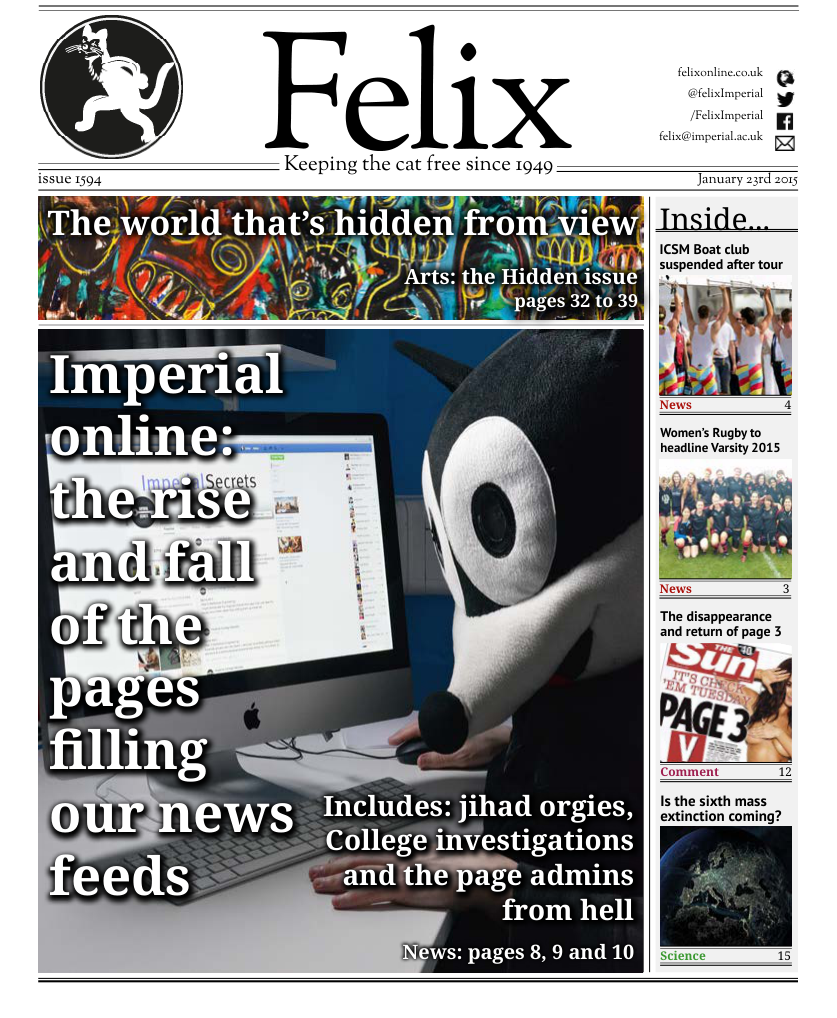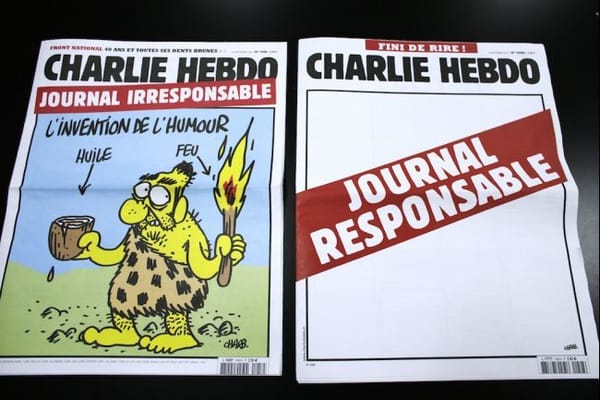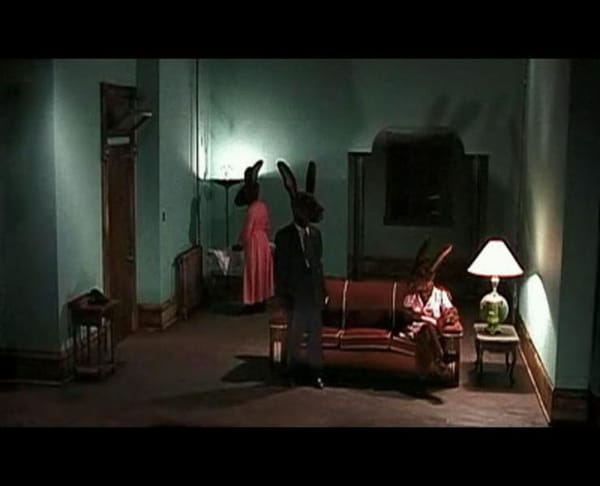We are not standing up for free speech
The mainstream media is not respecting the enlightenment of society

The Comment section of last week’s Felix made for interesting reading, unsurprisingly, the writers for the most part choosing to focus on the Charlie Hebdo massacre, which has been dominating headlines these past weeks. I’ll start by saying that there were good ideas expressed in those articles, and in the centre-left’s media response as a whole, however, I believe that _Felix _and the rest of the mainstream media is wrong not to stand up for freedom of expression and publish the cartoons.
Firstly, there’s no question that Charlie Hebdo is a crass and offensive publication – albeit that particularly delightful brand of crass and offensive, reminiscent of South Park, which achieves impartiality through indiscriminate lampooning. They shine a light on hypocrisy, whether it can be found in synagogues (they were ferociously critical of Israel’s bombing of Gaza), churches or mosques. They have also always been extremely disparaging of the far right bigotry which many seem quick to assume they represent, few having taken the time to look at anything other than their cartoons of Muslims. A quick perusal of their past publications is enough to reveal that the magazine – whilst undeniably unsubtle – is satirical, as well as morally sophisticated and consistent, meaning that obtuse comparisons of the cartoons to Nazi propaganda are neither apt nor helpful. I’m not here primarily to defend Charlie Hebdo, however I think that the interpretation of the ‘Je suis Charlie’ campaign as agreement with anything in particular published by the magazine would be a misunderstanding.
I feel that the mistakes that liberal journalists and intellectuals have made can often be traced back to good intentions – they are wary of criticising the beliefs of minorities for fear of inciting or contributing to persecution, and are very conscious of the historical (and contemporary) oppression of foreign peoples by Western powers. This attitude becomes dangerous when it stifles criticism of virulent ideologies through reflexively and uncritically defending any position, simply by virtue of the fact that it is held by a minority. Basically, the existence of persecution against Muslims doesn’t mean that Muslim ideologies and sensibilities need defending at every turn.
Charlie Hebdo satirises anyone and everyone, and I think that it’s plain to see that the groups which show the greatest resistance to that practice, even going so far as to threaten and exact violent retribution, are those most in need of it. Not only because their sensitivity is usually a product of the weakness of their position, but because if men with guns tell us not to do something perfectly harmless and we comply – even though it’s clearly the safest and easiest option, and many of us may not even have thought to perform the offensive action in the first place – we have capitulated. They go away (for now) secure in the knowledge that violence has once again trumped peaceful debate. Others watch, and eagerly load their weapons. The cartoons may not mean much by themselves, we may even find them distasteful and crude, but demonstrating to the world that the western media can be silenced with such threats weakens our credibility when it comes to criticising extremist Muslim ideology on other topics – homophobia, misogyny and sectarian conflict to name a few – of far greater importance. It is important to try to get along with people and embrace their ideas, but some ideas are genuinely terrible and need to be criticised, whether in cartoon form or any other, and doing so isn’t bigotry.
I am sure that many will object to my assertion that publishing these cartoons is ‘perfectly harmless’. Of course they don’t exactly fly in the face of visual stereotypes, and it would be something of an understatement to say Muslims have objected to them on religious grounds. But the truth is it isn’t reasonable to be offended by satire to this extent. Relative to the violent response amongst extremist Muslims to offences of this kind – and the ‘deafening silence’ in the wake of that violence we see all too often in moderates – the drawing of satirical doodles is completely harmless, and asserting anything else is lunacy. It doesn’t make ethical sense to complain that a murder victim was ‘needlessly offensive’ for insulting their attacker’s haircut, and doing so would veer dangerously close to an attempt to justify the crime. And yet we see this being argued all too often, in the Felix last week as well as in the liberal media as a whole.
Those moderate Muslims who share our desire for freedom should understand why we have to make this statement and print these cartoons, and that we mean no particular offence to them in doing so. I would say the same thing to moderate Jews or Christians if terrorists of their faith were willing to kill journalists in the name of censorship. In the long run, if we don’t stand up for the ideals that our society has strived to institutionalise over the past centuries then we risk losing them. And if we don’t defend them in print or by other peaceful means then we allow it to get to the stage where we must do so with police snipers, as was the case in France. So that’s why Felix, and every media publication with any respect for the enlightenment values so central to our society, should have published those cartoons.









